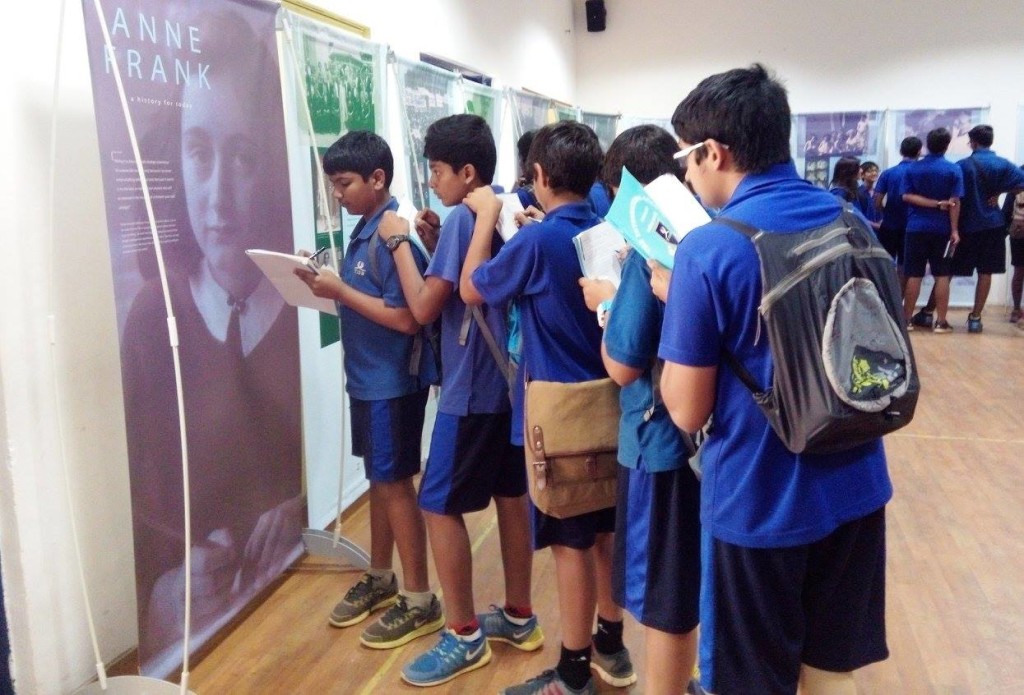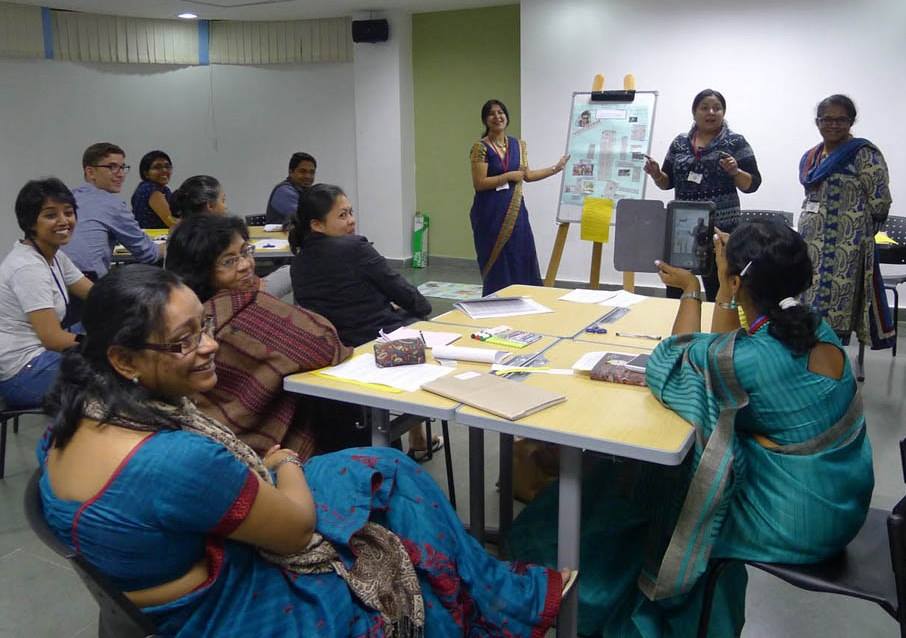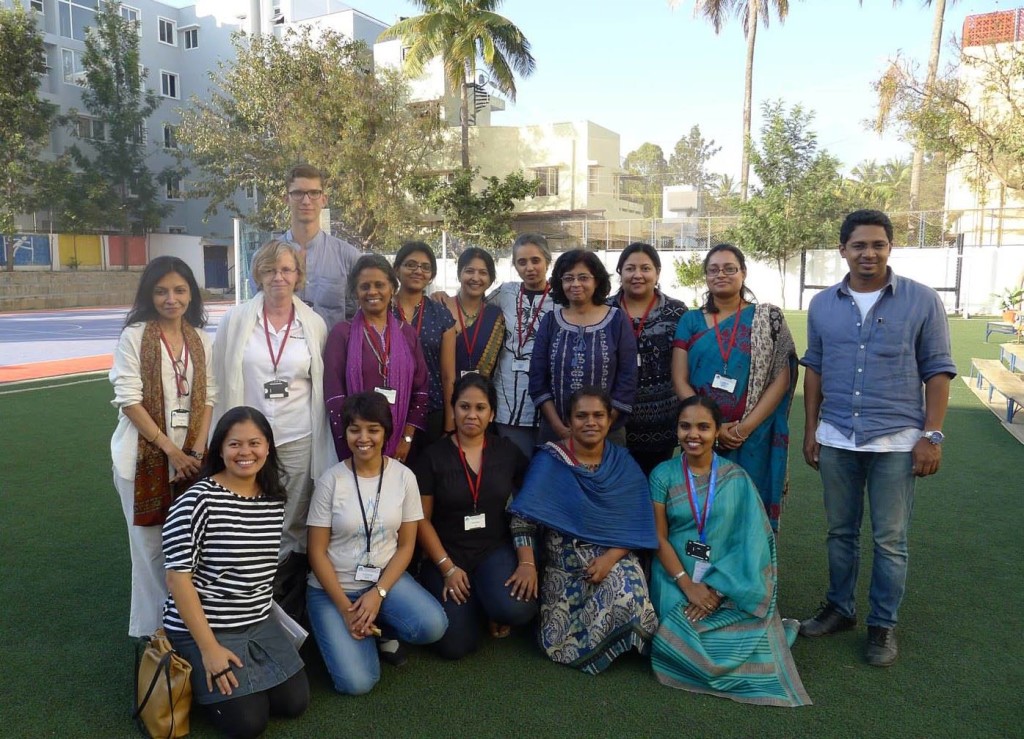The second week of February saw a flurry of activity in Bangalore, with the Bangalore International School hosting the traveling exhibition ‘Anne Frank-A History for Today’. Ever After Learning and PeaceWorks, together with the Anne Frank House, Amsterdam, set up the exhibition and also organized a teacher-training workshop.
The exhibition was attended by eleven schools in the city, reaching out to over 600 students as well as over 200 members of the general public. Those who viewed the exhibition came away enriched, with many schools requesting that they host the exhibition next!
The teacher training took place on 11 February 2015. The aim of the training was to connect the history of Anne Frank and the Holocaust to issues of tolerance and Human Rights. The facilitators of the workshop, which was attended by 10 teachers from 6 different schools and an IT professional, were Loes Singels and Priya Machado of the Anne Frank House, Amsterdam and Megha Malhotra of PeaceWorks, Calcutta.
The teacher training began with a powerpoint presentation by Priya and Loes about Anne Frank and Holocaust, a presentation of the mission statement (Remember, Reflect and React) and the aims of the Anne Frank House educational activities. This was followed by a film ‘A Short Life of Anne Frank’ and a look at the exhibition.
Working in 3 small groups the participants then made a poster of a selection of Nazi decrees and articles from the Universal Declaration of Human Rights. They chose articles from current Indian newspapers to illustrate that these rights were still being violated or were not respected.
Megha then introduced the module Learning to live with Difference a comprehensive resource on Human Rights , using the Holocaust as a backdrop, and engaging hands on activities that educators can use to engage students in human rights.
As an introduction to the module, which stresses on the ‘the best form of learning is in the doing’, the participants were asked to act out 3 dimensions of racism: social exclusion, bias and discrimination. This activity lead to discussion about what people can do to act against racism and discrimination and about the importance of prevention through education. The content of the module was introduced by a power point presentation and a TED talk on identity was shown.
The didactic methods employed during the teacher training were very well received by the participants, who enjoyed the interactive nature of activity-based learning.



